 June 29, 2017 John E. Ross, KD8IDJ, Editor
| ||||||
ARRL Headquarters to be Closed on July 3 and 4: ARRL Headquarters will be closed on Monday, July 3, and Tuesday, July 4, for the Independence Day holiday. There will be no ARRL bulletin or code practice transmissions on those days. ARRL Headquarters will reopen on Wednesday, July 5, at 8 AM ET. We wish everyone a festive and safe holiday! Amateur Radio Poised to Retain Full 76-81 GHz Band, Sharing with Vehicular Radars In a draft Report and Order (ET Docket No. 15-26) to be considered at its July 13 open meeting, the FCC has proposed lifting a nearly 2-decade-old suspension of Amateur Radio access to 76-77 GHz, giving the Amateur and Amateur-Satellite services access to the full 76-81 GHz band on a secondary basis. The FCC also reduced Amateur Radio's status from primary to secondary in the 77-77.5 GHz segment, to match the rest of the 76-81 GHz band, and it imposed a uniform power-level limit for users of the band. The draft Report and Order (R&O) concluded that Amateur Radio and vehicular radars will be able to successfully share the millimeter-wave band with minor adjustments in the Amateur Service rules. A goal of the proceeding has been to expand and consolidate the spectrum available worldwide for 76-81 GHz radar operations. It would bring the US Table of Allocations into line with decisions at the 2015 World Radiocommunication "The rule changes we adopt modifying the regulatory status of amateur stations and capping their power levels will ensure the continued operation of amateur stations in this band, and are a reasonable alternative to expanding the suspension of amateur operations from the 76-77 GHz band to the remainder of the 76-81 GHz band or removing the amateur allocations altogether from the 76-81 GHz band," the draft R&O said. "In addition, these changes, coupled with the nature of amateur operations in the band...will ensure that the potential for harmful interference from amateur operations to vehicular radar operations in the 76-81 GHz band is negligible and satisfy our efforts to ensure protection for the important safety functions that vehicular radars will provide." The FCC R&O would impose a 55 dBm peak effective isotropic radiated power (EIRP) limit (316 W EIRP) on Amateur Radio operations in the band. This is the same as that allowed to vehicular radars. The R&O reasons that the risk for potential interference between Amateur Radio operation and RLS operations "is mitigated by the directionality of vehicular radars' antennas -- downward in orientation and mounted on a low position on the vehicles." The R&O also cited the periodic and transient nature of amateur operations in the band coupled with high path losses in a band that is conducive to frequency re-use. In reaching its tentative conclusions relative to the amateur allocation in the 2015 proceeding, the FCC considered the comments of several individual radio amateurs as well as ARRL, Bosch, Delphi, the Automotive Safety Council, the Consumer Technology Association (CTA), and automakers and their representatives, among others. Several automotive manufacturers had asked that Amateur Radio be ousted from the band. "Germany Welcomes the World" to Friedrichshafen's Ham Radio 2017 "Germany Welcomes the World" is the theme of the 2017 edition of Europe's major annual Amateur Radio gathering, known simply as "Ham Radio" but more commonly called "Friedrichshafen," the city on the shores of Lake Constance where it takes place each summer. ARRL President Rick Roderick, K5UR, will head a League contingent to the event, which this year runs from Friday, July 14, until Sunday, July 16. The show was rescheduled from June, due to a schedule conflict at the Friedrichshafen Fairground (Messe Friedrichshafen), where Ham Radio is staged.
US Amateur Radio examinations will be offered on July 15 at Ham Radio by an ARRL Volunteer Examiner team. The session will get under way at 9 AM on the 5th floor of the Administration Building at Messe Friedrichshafen. Contact Manfred Lauterborn, K2PZ, for more information. The 42nd edition of Ham Radio will feature some 200 exhibitors from 30 countries, including around 70 associations. This year, the German Amateur Radio Club (DARC) will celebrate the 45th anniversary of the founding of the Amateur Radio center in Baunatal and will welcome visitors to the Lake Constance Conference. Among its show activities, the DARC will sponsor a competition for radio or electronics kits suitable for young people. Young radio enthusiasts aged 11 and older should be able to assemble the kits within 30 minutes, without having to etch circuit boards. There will be an on-site Amateur Radio flea market. The Chair of the IARU Region 1 Youth Working Group, Lisa Leenders, PA2LS, has invited young radio amateurs to join the International Youth Meeting on Saturday, July 15, at 10 AM, in the Liechtenstein Room. The program will include a rundown of the youth contesting program at 9A1A, plus an open mic session, where participants can share their experience on youth activities. "This is the moment to share your experiences on youth activities and to ask questions to other attendees," Leenders said. Members of the UK YOTA 2017 team will be at Ham Radio in Friedrichshafen to receive the official Youth on the Air (YOTA) flag from the YOTA Austria 2016 team.
A Ham Rally will take place on Friday and Saturday, offering a varied program for young Amateur Radio operators between the ages of 8 and 18, and a Ham Youth Camp -- organized by the fairgrounds and DARC for participants aged 27 and younger -- will take place during all 3 days of Ham Radio 2017. World Radiosport Team Championship 2018 (WRTC 2018), which takes place next July in Germany, will be a particular focus at Ham Radio 2017. The show will include an exhibit of WRTC equipment, plus a demonstration of the competition, as well as video presentations about WRTC 2018. Ham Radio sponsors say several other presentations at the show also will highlight the upcoming international event. A foxhunt will be held in the wooded area near the fairgrounds on the final day of the show. The concurrent and fourth annual Maker Faire will open its doors at the Fairground on Saturday and Sunday, offering creative minds and tinkerers ideas and accessories at about 80 exhibitors. Ham Radio 2018 will take place June 1-3 in Friedrichshafen. Read more. ARRL Foundation Announces Two New Scholarships Starting in 2018, the ARRL Foundation will offer two new scholarships for radio amateurs pursuing post-secondary education. They have been established by the Medical Amateur Radio Council (MARCO) and by the Shenandoah Valley Amateur Radio Club (SVARC).
The applicant's field of study may include, but is not necessarily limited to, medicine, dentistry, veterinary medicine, nursing, pharmacology, emergency medicine (EMT), or radiology. Preference will go to undergraduates and to those in certificate programs, but graduate students also may apply. Applicants should provide details regarding their involvement in Amateur Radio-related volunteer and/or public service activities. If possible, they should demonstrate a desire to encourage others in the healing arts to become Amateur Radio licensees. The scholarship award of $500 annually is to cover the costs of tuition, books, fees, and other educational expenses. The Shenandoah Valley Amateur Radio Club Scholarship will provide financial assistance for the educational expenses of a radio amateur enrolled in an accredited 2- or 4-year college or university and pursuing a degree in a business, science, math, engineering, or technology-related field. Preference will be given to applicants who live in the Virginia counties of Page, Shenandoah, Warren, or Clarke, or in the City of Winchester, or living in the West Virginia counties of Hampshire, Jefferson, or Berkeley. If no qualified applicant is identified, the scholarship may be awarded to any applicant residing in Virginia who meets the other eligibility requirements.
The ARRL Foundation shall determine award recipients to be academically superior and the best among the scholarship applicants. The scholarship award will be $1,000 annually, with one scholarship grant each year. Established in 1973 by ARRL as an independent and separate IRS 501(c)(3) organization, the ARRL Foundation administers programs to support the Amateur Radio community. Visit the ARRL Foundation web page for more information on scholarships the Foundation administers. Region 1 Intruder Watch Reports the Usual Suspects International Amateur Radio Union Region 1 Monitoring System (IARUMS) volunteers continue to document many of the same signals intruding on Amateur Radio bands -- some of them audible in other parts of the world, according to the latest editions of the IARUMS Region 1 newsletter. IARUMS Region 1 Coordinator Wolf Hadel, DK2OM, reported last month that his own band-monitoring activity has been hampered by interference from a neighbor's LED lamp, and that Germany's telecoms regulator was not helpful in resolving the situation, which Hadel says affects all bands from 80 through 10
meters. Nonetheless, he has worked around the local interference to document many of the same bad actors that show up in the IARUMS Region 1 newsletter month after month. IARU Region 1 includes Europe and Africa. These usual suspects include a Russian Navy F1B RTTY signal on 14.180 MHz in Sevastopol in Crimea that is, "still active, not regarding official complaints." Last fall, IARUMS reported that complaints had been successful in silencing the intruder. Another Russian F1B RTTY signal had been showing up on 7.051 MHz, "mostly idling and every evening," Hadel reported in May. German telecoms regulators registered an official complaint, which apparently was successful in that instance. Hadel also reported "daily" transmissions of music on 7.050 MHz (LSB), possibly originating in Russia. The "mysterious beacon 'D'" from Asiatic Russia has been reported on CW on 7.093.3 kHz, with spurious transmissions on 7.078.6, 7.117.9, and 7.157.2 MHz, as well as outside the band. Broadcaster Radio Hargeysa in Somalia continued to be reported on 7.120 MHz (AM) daily. Hadel indicated that the signal is audible in Australia and Japan, as well as in Europe and Africa. On 7.175 MHz, Radio Eritrea continues to be jammed daily with white noise transmissions attributed to Radio Ethiopia. IARUMS reported jamming of Radio Taiwan on 7.200 MHz, apparently originating in China and audible "every evening" in Europe. The Chinese "foghorn" over-the-horizon radar (OTH-R) continues to intrude on 20 meters, with signals on 14.211 MHz "jumping to 14.290 and 14.302 MHz." The Russian "Konteyner RLS" OTH-R remains a problem on 14.280 MHz. Read more. The Doctor Will See You Now! "Generators" is the topic of the current (June 22) episode of the "ARRL The Doctor is In" podcast. Listen...and learn!
Every 2 weeks, your host, QST Editor-in-Chief Steve Ford, WB8IMY, and the Doctor himself, Joel Hallas, W1ZR, will discuss a broad range of technical topics. You can also e-mail your questions to doctor@arrl.org, and the Doctor may answer them in a future podcast. Enjoy "ARRL The Doctor is In" on Apple iTunes, or by using your iPhone or iPad podcast app (just search for "ARRL The Doctor is In"). You can also listen online at Blubrry, or at Stitcher (free registration required, or browse the site as a guest) and through the free Stitcher app for iOS, Kindle, or Android devices. If you've never listened to a podcast before, download our beginner's guide. ARRL to Sponsor 2017 Atlantic Hurricane Season Webinar The ARRL will sponsor a 2017 Atlantic Hurricane Season Webinar on Monday, July 17, at 8 PM ET (0000 UTC on Tuesday, July 18). The approximately 90-minute session will address the role of Amateur Radio during the 2017 Hurricane Season. Anyone interested in hurricane preparedness and response is invited to take part in this online presentation.
Webinar registration is free and open to all, but this session should be of particular interest to radio amateurs in hurricane-prone areas. The webinar will conclude with a question-and-answer session. For more information, contact ARRL Emergency Preparedness Manager Mike Corey, KI1U. Pikes Peak ARES at Right Place, Right Time Members of Pikes Peak ARES® (PPARES -- Region 2, District 2 of Colorado ARES) were supporting the Mountain Top Cycling Club's annual Experience Ride on June 17, when a motor vehicle collision occurred at an intersection where a race rest stop was located. Three PPARES members on site -- Dan Huber, KN0MAP; Matthew Tuttle, KD0YBE, and Dean Buckhouse, KB0VVA -- were able to respond to the accident, which involved a passenger car and a pick-up truck. There were injuries, and one of the truck's gas tanks had ruptured and was leaking fuel.
One ARES operator called 911, but cellphone coverage was spotty, and the call dropped after only basic information had been conveyed. A report then was relayed via Amateur Radio to the race communications coordinator and director positions, which had much better coverage, and the director, John Higgins, N6VTS, was able to provide the dispatcher with the necessary information. The on-scene operators were able to assess the situation and assist with traffic control and initial hazardous materials mitigation. Coordinators, who still had riders to track and a course to sweep, were Nate Dwyer, KE0AHK, and Bob Antion, WL7RV. "It was reassuring to know that experienced and level-headed ARES operators were in the right spot at the right time," said John Bloodgood, KD0SFY, Pikes Peak ARES Emergency Coordinator and Public Information Officer. W8CDX Takes Field Day Back to its Roots Some younger radio amateurs may not realize that ARRL Field Day has been a staple operating event for more than 80 years. Former ARRL Communications Manager F. E. Handy, W1BDI, is credited with conceiving "International Field Day" in 1933, although it wasn't until the following year that he described it as the "test of the emergency availability of portable stations and equipment" we know today. For Field Day 2017, the crew at the Karns City Amateur Radio Club, W8CDX, once again took Field Day equipment back to the 1930s -- a time when the notion of "portable" applied only loosely to equipment of the era. Last year, W8CDX used a National HRO-5 receiver and a style of transmitter similar to something that could have been used at that first Field Day. This time, everything was home built.
"We had a lot of fun putting up another 1930s-style station for Field Day 2017," said Eric Tichansky, NO3M, the trustee of the W8CDX station. The transmitter was based on an August 1934 QST article, "A Medium-Powered Phone-C.W. Transmitter with Pentode Power Tubes," the receiver on a May 1934 QST article, "A De Luxe Crystal Type S.S. Receiver." Tichansky has documented the receiver project from start to finish. "This would have been a possible setup used in the third Field Day in 1935," Tichansky told ARRL. "The entire station was 100% homebrew, including the power supplies, T/R switching, and link-coupled antenna tuner -- inspired by a 1935 ARRL Handbook project." Power supplies were based on standard designs from that era, using 866s in the amplifier supply and 83s in the buffer and oscillator supplies. The bias supply used an 80 rectifier and an 874 regulator of late 1920s vintage to supply the needed -90 V bias.
Tichansky said the T/R switch, which could be operated by foot switch, not only switched the antenna between receiver and transmitter, but opened the keying line in receive, grounded the receiver input on transmit, lifted the grounded end of the receiver's RF/IF gain pot, and put a 15 kW potentiometer in line to adjust the side tone level. The antenna was an 80-meter doublet fed with homebrew open-wire feed line. Using the replicated vintage gear, W8CDX logged 305 contacts, about evenly split between 40 and 80 meters -- up from 153 on 40 meters alone in 2016. The biggest issue on the air was chirp, "depending on how the stages in the rig were tuned." Sometimes the receiver would decide on its own to change frequency. Tichansky gave the gear a trial run during the Breezeshooters Hamfest at the Butler Fairgrounds in Prospect, Pennsylvania, on June 4, making several contacts. "We plan to keep this going as an annual event," Tichansky told ARRL. "It's really a lot of fun putting this antique-style gear on the air." In Brief...
The K7RA Solar Update Tad Cook, K7RA, Seattle, reports: Not much change in the numbers since last week, but all indicators were lower. The average daily sunspot number moved from 29.4 to 20.3, and average daily solar flux went from 74.6 to 73.6. The average daily planetary A index dipped from 9.4 to 6.9, and the mid-latitude A index from 8.1 to 7.4. Predicted solar flux is 72 on June 29-July 2; 70, 71, and 72 on July 3-5; 74 on July 6-7; 75 on July 8-14; 76 on July 15-16; 75 on July 17-19; 74 on July 20-22; 72 on July 23-24; 77 on July 25-28; 74, 73 and, 72 on July 29-31; 73 on August 1; 74 on August 2-3, and 75 on August 4-10.
The ARRL website includes monthly propagation charts between four US regions and 12 overseas locations. Sunspot numbers for June 22 through 28, 2017 were 23, 22, 28, 20, 19, 17, and 13, with a mean of 20.3. The 10.7-centimeter flux was 73.7, 73.7, 74.1, 73.7, 73.7, 74.1, and 72.1, with a mean of 73.6. Estimated planetary A indices were 6, 5, 9, 11, 7, 5, and 5, with a mean of 6.9. Estimated mid-latitude A indices were 8, 6, 8, 11, 9, 5, and 5, with a mean of 7.4. In Friday's bulletin look for an updated forecast and reports from readers, including 6-meter reports from Rich Zwirko, K1HTV, and Scott Bidstrup, TI3/W7RI. Send me your reports or observations, especially on propagation during ARRL Field Day. Just Ahead in Radiosport
See the ARRL Contest Calendar for more information. For in-depth reporting on Amateur Radio contesting, subscribe to The ARRL Contest Update via your ARRL member profile e-mail preferences. Upcoming ARRL Section, State, and Division Conventions
Find conventions and hamfests in your area.
. .
Subscribe to...
Free of charge to ARRL members...
Find ARRL on Facebook! Follow us on Twitter and Instagram! | ||||||
.jpg) Conference (WRC-15) and make the entire band available internationally for vehicular radars operating in the Radiolocation Service (RLS).
Conference (WRC-15) and make the entire band available internationally for vehicular radars operating in the Radiolocation Service (RLS).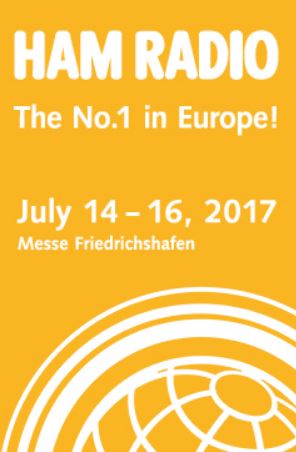 Others on the ARRL team attending Ham Radio/Friedrichshafen will be ARRL Radiosport Manager Norm Fusaro, W3IZ; ARRL Marketing Manager Bob Inderbitzen, NQ1R, and ARRL International Affairs Vice President
Others on the ARRL team attending Ham Radio/Friedrichshafen will be ARRL Radiosport Manager Norm Fusaro, W3IZ; ARRL Marketing Manager Bob Inderbitzen, NQ1R, and ARRL International Affairs Vice President 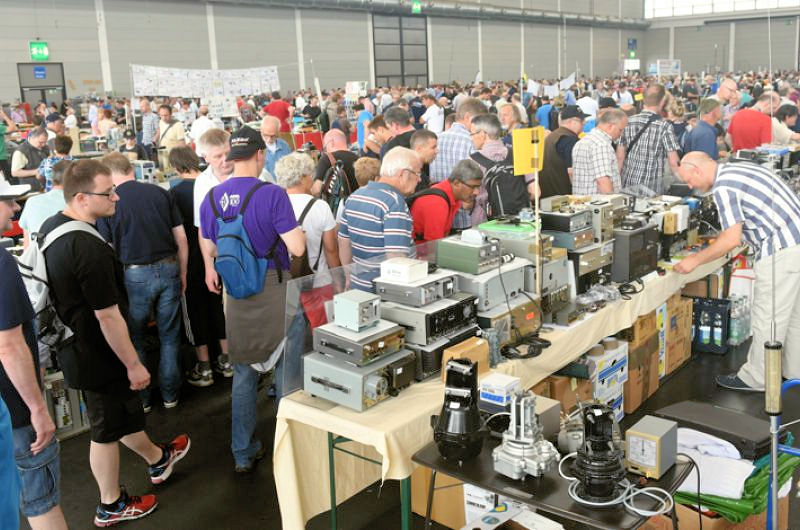
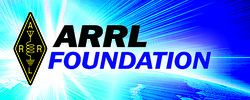 The MARCO scholarship will provide financial assistance for the educational expenses of a radio amateur pursuing higher education in the healing arts and who is performing at a high academic level (grade point average of at least 3.0).
The MARCO scholarship will provide financial assistance for the educational expenses of a radio amateur pursuing higher education in the healing arts and who is performing at a high academic level (grade point average of at least 3.0). The award is intended exclusively to cover the costs of tuition, room, board, books, and/or other fees essential to the advanced education of the recipient.
The award is intended exclusively to cover the costs of tuition, room, board, books, and/or other fees essential to the advanced education of the recipient. 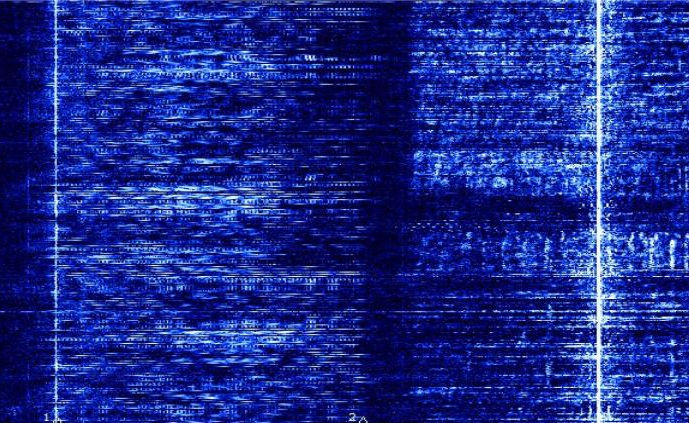
.jpg) Sponsored by
Sponsored by .jpg) Topics will include a meteorological overview of the current season from the
Topics will include a meteorological overview of the current season from the .jpg)
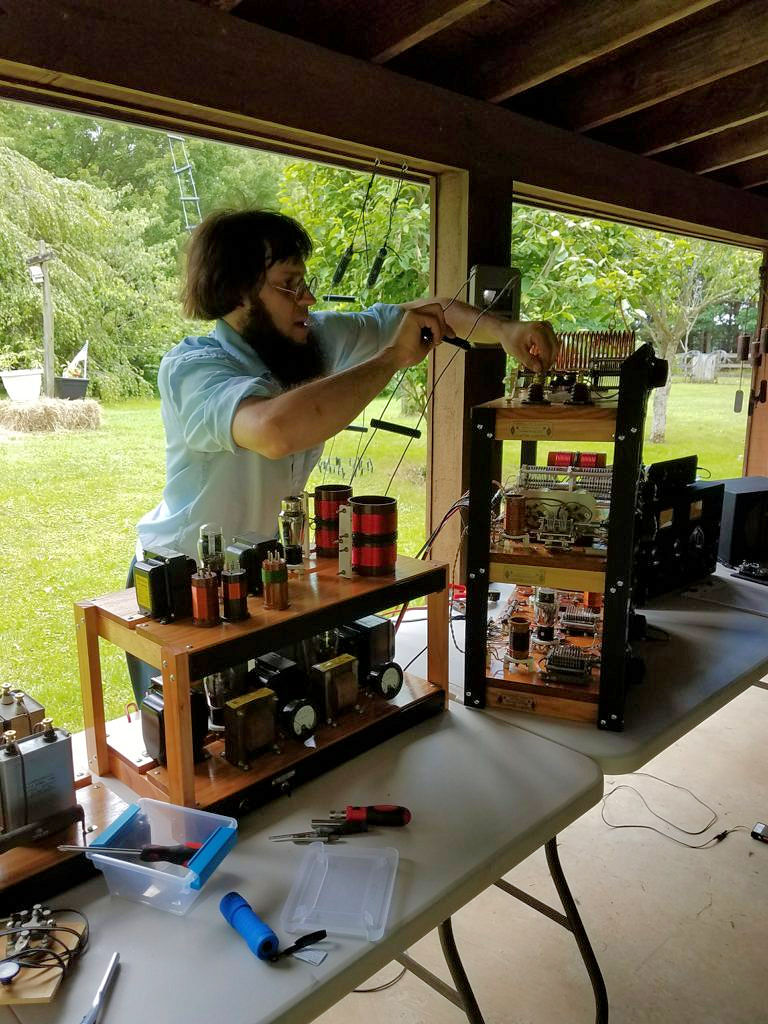
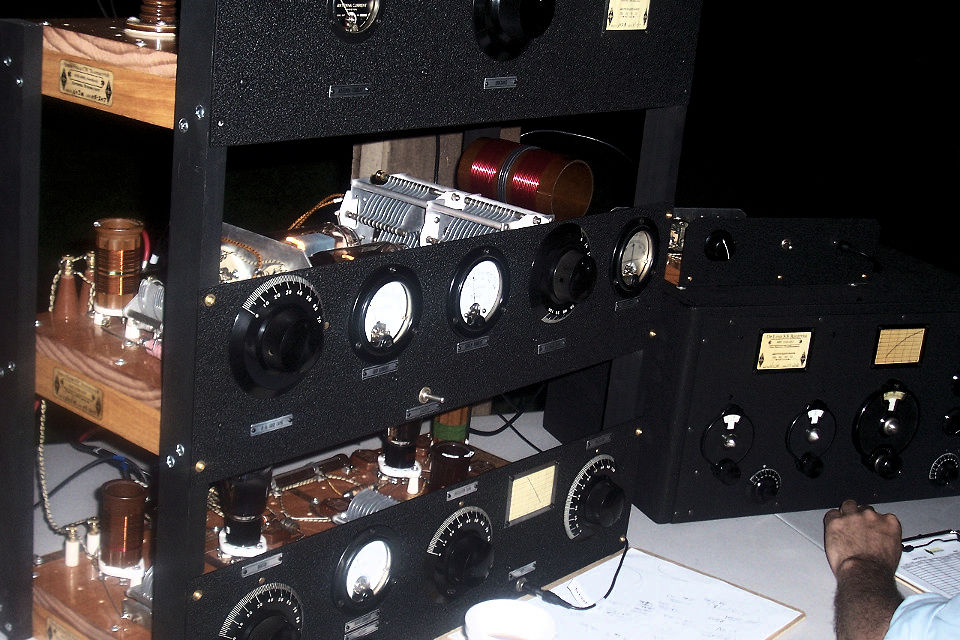
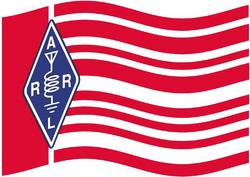 ARRL Seeking Additional Vintage DXpedition Logs for Archive: ARRL continues to solicit paper logs of prominent DXpeditions that took place predominantly in the 1950s, 1960s, and 1970s, for inclusion in
ARRL Seeking Additional Vintage DXpedition Logs for Archive: ARRL continues to solicit paper logs of prominent DXpeditions that took place predominantly in the 1950s, 1960s, and 1970s, for inclusion in 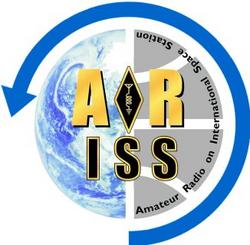 ARISS Commemorative SSTV Activity Planned for Mid-July: To commemorate its 20th anniversary, ARISS is planning to transmit a set of 12 slow-scan television (SSTV) images that capture the accomplishments of ARISS over the years. SSTV transmissions from the International Space Station will take place on 145.800 MHz FM around the July 15-16 weekend. "We are planning for at least a 2-day operation, but are working for a potentially longer operation," ARISS International Chair Frank Bauer, KA3HDO, said in an
ARISS Commemorative SSTV Activity Planned for Mid-July: To commemorate its 20th anniversary, ARISS is planning to transmit a set of 12 slow-scan television (SSTV) images that capture the accomplishments of ARISS over the years. SSTV transmissions from the International Space Station will take place on 145.800 MHz FM around the July 15-16 weekend. "We are planning for at least a 2-day operation, but are working for a potentially longer operation," ARISS International Chair Frank Bauer, KA3HDO, said in an .jpg) ARRL and IARU Headquarters Stations to be Active during IARU HF Championship: The
ARRL and IARU Headquarters Stations to be Active during IARU HF Championship: The 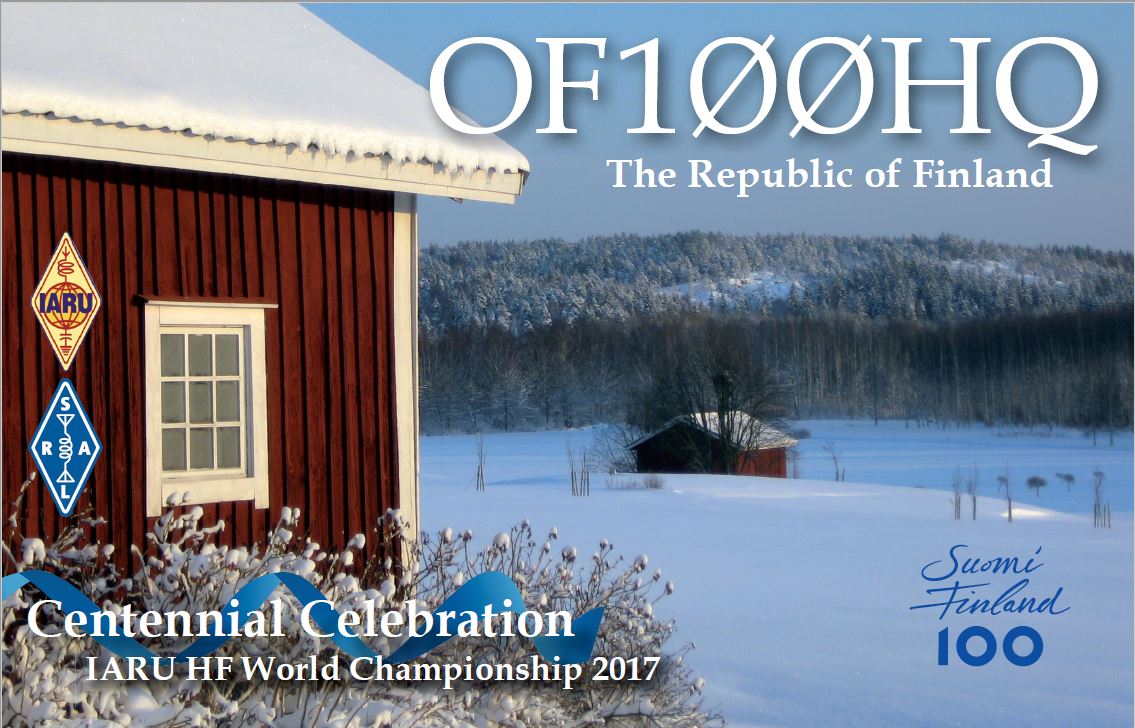 OF100HQ Will Celebrate Finland's Centennial in IARU HF Championship Event: The commemorative call sign OF1ØØHQ will be on the air during the
OF100HQ Will Celebrate Finland's Centennial in IARU HF Championship Event: The commemorative call sign OF1ØØHQ will be on the air during the 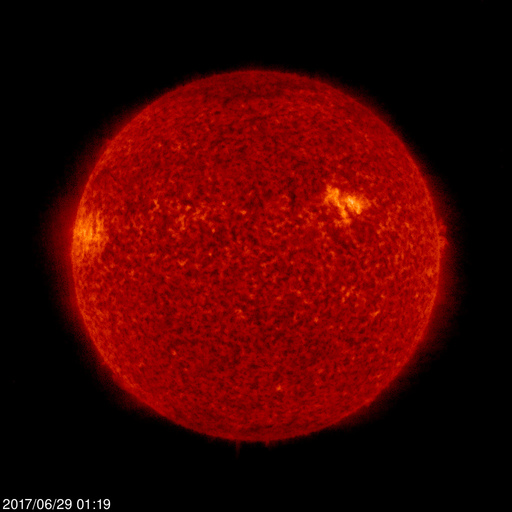 The predicted planetary A index is 10 on June 29-30; 5 on July 1-12; 20, 12, and 10 on July 13-15; 5 on July 16-20; 10, 12, 10, and 5 on July 21-24; 10 on July 25-26; 5 on July 27-August 8, and 20, 12, and 10 on August 9-11.
The predicted planetary A index is 10 on June 29-30; 5 on July 1-12; 20, 12, and 10 on July 13-15; 5 on July 16-20; 10, 12, 10, and 5 on July 21-24; 10 on July 25-26; 5 on July 27-August 8, and 20, 12, and 10 on August 9-11.







